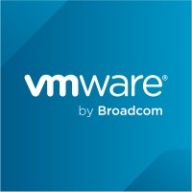


HPE StoreVirtual and VMware Software Defined Storage compete in the storage technology space. Based on user feedback, HPE StoreVirtual has the upper hand in hardware stability and support, while VMware excels in availability and scalability.
Features: HPE StoreVirtual offers robust platform integration, simplifying management with a single control point and broad support across hardware and hypervisors. It provides users the ability to repurpose existing hardware, enhancing cost-effectiveness. On the other hand, VMware Software Defined Storage is known for high availability and redundancy, allowing easy data migration and scalability, making it adaptable to growing data needs.
Room for Improvement: HPE StoreVirtual requires improvement in managing latency issues and enhancing scalability for complex environments. Users also report challenges with license management and integration. VMware Software Defined Storage could improve performance and reporting features, and address its high costs with a more favorable licensing model.
Ease of Deployment and Customer Service: HPE StoreVirtual provides knowledgeable technical support and comprehensive documentation, though users face delays in ticket resolutions and acquiring advanced engineering expertise. VMware offers solid support with experienced staff, yet deployment may vary in complexity based on user expertise and infrastructure needs.
Pricing and ROI: HPE StoreVirtual holds an initial high cost but offers declining cost per user with scale, presenting a valuable long-term investment. It includes high availability and clustering in its licensing model without additional charges, but users find it challenging to navigate. VMware Software Defined Storage is perceived as expensive, swaying users towards more economical choices; however, it promises comparable ROI to smaller SANs, despite potentially high costs for bundled software and hardware.
| Product | Market Share (%) |
|---|---|
| Pure Storage FlashBlade | 3.3% |
| VMware Software Defined Storage | 1.9% |
| HPE StoreVirtual | 2.2% |
| Other | 92.6% |



| Company Size | Count |
|---|---|
| Small Business | 11 |
| Midsize Enterprise | 11 |
| Large Enterprise | 21 |
| Company Size | Count |
|---|---|
| Small Business | 19 |
| Midsize Enterprise | 15 |
| Large Enterprise | 19 |
| Company Size | Count |
|---|---|
| Small Business | 2 |
| Midsize Enterprise | 1 |
| Large Enterprise | 6 |
FlashBlade is the industry’s most advanced scale-out storage for unstructured data, powered by a modern, massively parallel architecture to consolidate complex data silos (like backup appliances and data lakes) and accelerate tomorrow’s discoveries and insights.
HPE StoreVirtual storage ensures that organisations can optimise the benefits of server virtualisation with cost-effective high availability and disaster recovery. The iSCSI-based, scale-out storage platform is easy to manage and change – meeting ongoing business demands without creating IT bottlenecks or application downtime. Overcoming the cost and management limitations of traditional storage area networks (SANs), HPE StoreVirtual nodes use storage clustering to form a single pool of resources that enable organisations to buy only what they need today, scaling non-disruptively to meet requirements in the future.
VMware software-defined storage is a simple, yet intelligent, storage data center architecture that aligns with business and application demands—eliminating static, purpose-built and inefficient hardware with dynamic, agile and automated solutions.
We monitor all Software Defined Storage (SDS) reviews to prevent fraudulent reviews and keep review quality high. We do not post reviews by company employees or direct competitors. We validate each review for authenticity via cross-reference with LinkedIn, and personal follow-up with the reviewer when necessary.